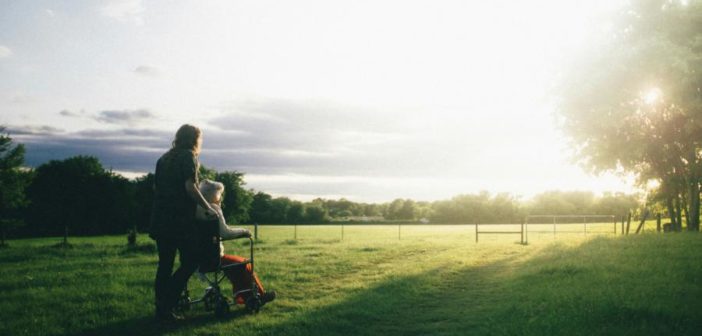Consider the End of Life
Imagine two scenarios at the end of life. The first, you are dying in a hospital room, drawing your last breath. You have been well cared for by the hospital nursing staff, but they are overworked and understaffed. They are not in the room with you at this moment and you leave this life alone and unnoticed. This first example of being alone at death may be universally dreaded by most people.
The second scenario, you are dying and there is a person in the room who is there to care for you, to comfort and guide you. This person has training and skills in managing the dying process and recognizes the final steps that you are taking. This person is also there for you and your family and friends.
Most of us would find comfort in imagining our last day in the second scene. You might assume that it describes being in hospice. Yes, that is true. But, it also is an example of the role of a death doula.
More than Hospice Care
I am very grateful for hospice care. Though I am an RN, the hospice nurse and staff gave wonderful care to my father as he died which allowed me to just be the daughter. It was life affirming. In light of that, I have been surprised over the years to hear friends have had very different hospice experiences with their loved ones. For some, it seemed the hospice was only a business; they were disappointed with the lack of time that the hospice staff actually spent with the dying person; and others were left with feelings of being overwhelmed and guilty about their lack of knowledge of what to do when the hospice nurse was not there.
What is a Death Doula?
According to the International End of Life Doula Association, a Death Doula or End of Life Doula is “is a trained nonmedical professional who provides emotional, physical, and educational support for someone nearing death. They can be considered a mentor for the final chapter of life and are typically brought in by the dying individual’s family.” There are also end of life doulas who do have medical backgrounds. They may have the title of death doula, end of life doula or death midwife. Their training includes knowledge and practice of physical support as well as dispensing emotional and spiritual education and guidance of the last days and hours of life. Some doulas are volunteers with a hospice, and others offer a paid service.
Meet an End of Life Doula
Jennifer Anderson has had a long career as a professional caregiver and CNA. In her private care realm, she has managed care for many elders and has served as a team leader. She has cared for couples and individuals as they age.
Like other passionate professionals, she wanted to learn more. “Working with geriatric patients, I’m usually with them during their final days. I wanted more training to help support patients and their loved ones in the final transition.” Jennifer found a local not for profit hospice that offered death doula training. There were all sorts of people who attended the training to become volunteer doulas for the agency. Some, like Jennifer, were experienced caregivers. Others were retirees who wanted to help others.
The training included lectures and discussion with doctors and nurses. There was role playing for the students to experience what families and the dying go through. There was even a visit to a funeral service to learn what happens after death. Jennifer noted that “I didn’t know that my role would be broader than just bedside support.”
Becoming a death doula has expanded Jennifer’s professional career and outlook. “I refer to myself as an end of life doula. I feel it’s a more gentle term. Hospice uses death doula. They don’t mind us referring to ourselves as either. I would never want to use the term death doula for anyone who’s having a hard time accepting their prognosis.”
And for anyone considering becoming an end of life doula, Jennifer has this advice: “Come in with an open heart and no agenda.”

